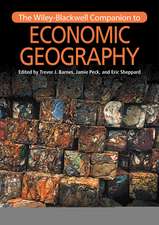Neutrality and Small States: Routledge Revivals
Autor Efraim Karshen Limba Engleză Paperback – 16 apr 2012
| Toate formatele și edițiile | Preț | Express |
|---|---|---|
| Paperback (1) | 482.08 lei 6-8 săpt. | |
| Taylor & Francis – 16 apr 2012 | 482.08 lei 6-8 săpt. | |
| Hardback (1) | 1059.84 lei 6-8 săpt. | |
| Taylor & Francis – 15 mai 2011 | 1059.84 lei 6-8 săpt. |
Din seria Routledge Revivals
- 9%
 Preț: 801.71 lei
Preț: 801.71 lei - 8%
 Preț: 432.64 lei
Preț: 432.64 lei -
 Preț: 153.83 lei
Preț: 153.83 lei -
 Preț: 230.80 lei
Preț: 230.80 lei -
 Preț: 309.79 lei
Preț: 309.79 lei -
 Preț: 258.73 lei
Preț: 258.73 lei - 9%
 Preț: 764.35 lei
Preț: 764.35 lei - 9%
 Preț: 903.42 lei
Preț: 903.42 lei -
 Preț: 311.18 lei
Preț: 311.18 lei -
 Preț: 357.45 lei
Preț: 357.45 lei - 9%
 Preț: 606.36 lei
Preț: 606.36 lei -
 Preț: 317.54 lei
Preț: 317.54 lei - 9%
 Preț: 764.30 lei
Preț: 764.30 lei -
 Preț: 257.01 lei
Preț: 257.01 lei -
 Preț: 238.40 lei
Preț: 238.40 lei -
 Preț: 259.48 lei
Preț: 259.48 lei - 9%
 Preț: 903.81 lei
Preț: 903.81 lei -
 Preț: 326.26 lei
Preț: 326.26 lei -
 Preț: 258.67 lei
Preț: 258.67 lei -
 Preț: 294.98 lei
Preț: 294.98 lei -
 Preț: 308.89 lei
Preț: 308.89 lei -
 Preț: 199.86 lei
Preț: 199.86 lei -
 Preț: 347.50 lei
Preț: 347.50 lei -
 Preț: 302.59 lei
Preț: 302.59 lei -
 Preț: 389.40 lei
Preț: 389.40 lei -
 Preț: 257.01 lei
Preț: 257.01 lei -
 Preț: 343.22 lei
Preț: 343.22 lei - 9%
 Preț: 640.91 lei
Preț: 640.91 lei - 9%
 Preț: 619.49 lei
Preț: 619.49 lei -
 Preț: 228.88 lei
Preț: 228.88 lei -
 Preț: 265.16 lei
Preț: 265.16 lei -
 Preț: 245.11 lei
Preț: 245.11 lei -
 Preț: 258.54 lei
Preț: 258.54 lei -
 Preț: 258.73 lei
Preț: 258.73 lei -
 Preț: 368.93 lei
Preț: 368.93 lei -
 Preț: 246.38 lei
Preț: 246.38 lei - 9%
 Preț: 832.08 lei
Preț: 832.08 lei -
 Preț: 258.67 lei
Preț: 258.67 lei -
 Preț: 286.99 lei
Preț: 286.99 lei - 18%
 Preț: 695.86 lei
Preț: 695.86 lei - 9%
 Preț: 934.96 lei
Preț: 934.96 lei - 5%
 Preț: 243.38 lei
Preț: 243.38 lei -
 Preț: 274.69 lei
Preț: 274.69 lei -
 Preț: 200.67 lei
Preț: 200.67 lei - 9%
 Preț: 638.62 lei
Preț: 638.62 lei -
 Preț: 259.69 lei
Preț: 259.69 lei - 9%
 Preț: 1038.47 lei
Preț: 1038.47 lei -
 Preț: 389.46 lei
Preț: 389.46 lei -
 Preț: 302.14 lei
Preț: 302.14 lei -
 Preț: 302.27 lei
Preț: 302.27 lei
Preț: 482.08 lei
Nou
Puncte Express: 723
Preț estimativ în valută:
92.26€ • 95.96$ • 76.16£
92.26€ • 95.96$ • 76.16£
Carte tipărită la comandă
Livrare economică 15-29 aprilie
Preluare comenzi: 021 569.72.76
Specificații
ISBN-13: 9780415612012
ISBN-10: 0415612012
Pagini: 238
Dimensiuni: 138 x 216 x 13 mm
Greutate: 0.44 kg
Ediția:1
Editura: Taylor & Francis
Colecția Routledge
Seria Routledge Revivals
Locul publicării:Oxford, United Kingdom
ISBN-10: 0415612012
Pagini: 238
Dimensiuni: 138 x 216 x 13 mm
Greutate: 0.44 kg
Ediția:1
Editura: Taylor & Francis
Colecția Routledge
Seria Routledge Revivals
Locul publicării:Oxford, United Kingdom
Cuprins
Part I: Neutrality: A framework for analysis 1. Historical development of the concept of neutrality 2. Neutrality: Definition and characteristics Part II: The operative of the policy of neutrality 3. The positive component of neutral policy 4. The negative component of neutral policy Part III: Preserving neutrality: The impact of the external environment 5. Neutrality and geo-strategic location 6. Neutrality and the balance of power 7. Neutrality and international co-operation Part IV: Neutrality in the contemporary international system 8. Between adaptation and discussion: Neutrality in postwar Europe 9. Neutrality and nuclear arms
Descriere
Originally published in 1988, this book examines the experiences of neutral states in Europe during the Second World War and in the postwar peiod. It examines both the practical and the theoretical considerations and the interface between the two, and discusses the implications of the experience of these countries for small states generally.





















